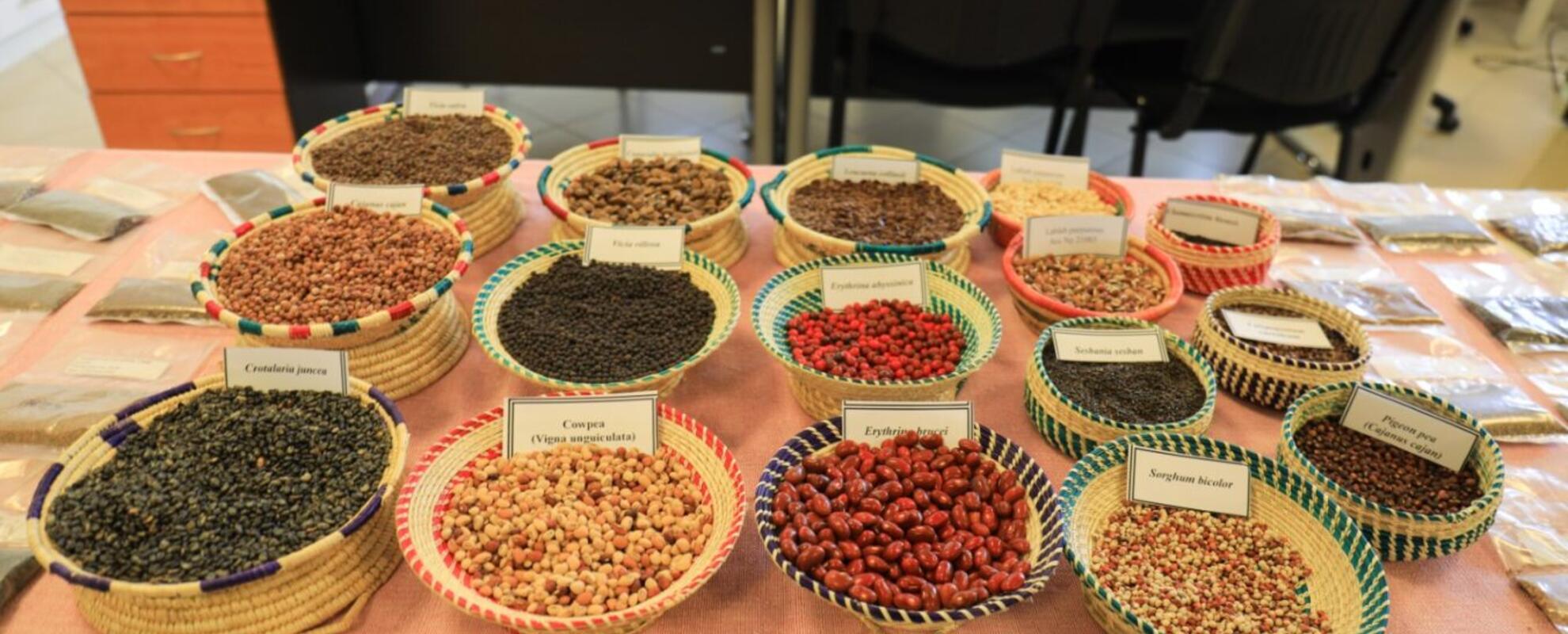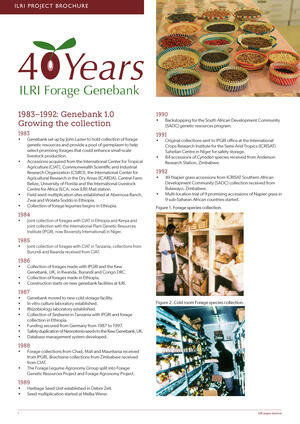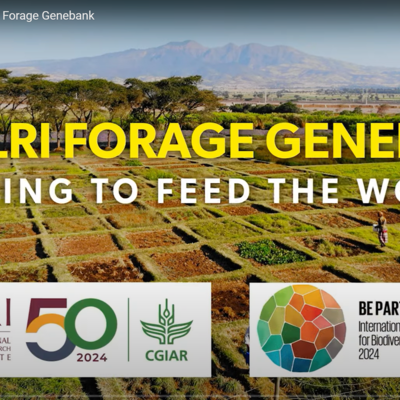
Seeds for the future: Celebrating the 40th Anniversary of ILRI’s Forage Genebank
ILRI forage factsheets

The ILRI Forage Genebank was set up by John Lazier to hold a collection of forage genetic resources to help select promising forages that could enhance small-scale livestock production.
- Accessions were acquired from the International Center for Tropical Agriculture (CIAT), Commonwealth Scientific and Industrial Research Organization (CSIRO), the International Center for Agricultural Research in the Dry Areas (ICARDA), Central Farm Belize, University of Florida and the International Livestock Centre for Africa (ILCA, now ILRI) Mali station.
- Field seed multiplication sites were established at Abernosa Ranch, Zwai and Wolaita Soddo in Ethiopia.
- Collection of forage legumes began in Ethiopia















